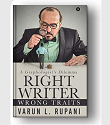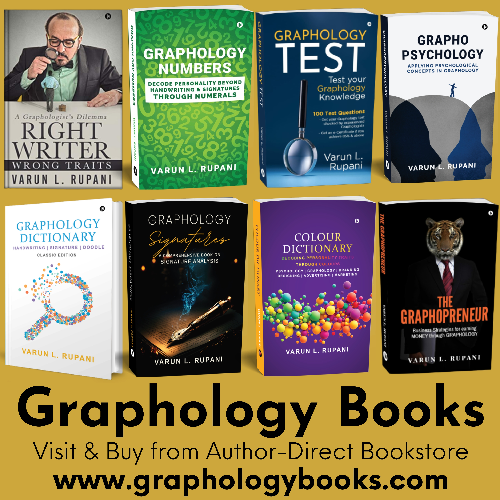Alternative Therapies
- Alternative Medicine
- Access Bars
- Access Body Processes
- Access Consciousness
- Access Energetic Faclift
- Acupressure
- Acupuncture
- Akashic Records
- Ancient Magnetism
- Angel Healing
- Aromatherapy
- Aura Reading
- Ayurveda
- Bach Flower Remedies
- Blueprint Numerology
- Breathwork
- Chakra Healing
- Cosmetic Acupuncture
- Crystal Healing
- Cupping Therapy
- Divine Healing Hands
- Distance Healing
- Emotional Freedom Technique (EFT)
- Energy Healing
- Energy Medicine
- Ergonomics
- Family Constellation
- Face Reading
- Fengshui
- Gaiadon Heart
- Geomancy
- Heal Your Life
- Graphology
- Holistic Solutions
- Holy Fire Reiki
- Homeopathy
- Ho'oponopono
- Humkara with Haleem
- Hypnotherapy
- Inner Child Therapy
- Intuitive Reading
- Jesus Reiki
- Jikiden Reiki
- Jin Shin Jyutsu
- Karuna Reiki
- Karmic Healing
- Lama Fera
- Lenormand Cards
- Light Language Healing
- Law of Attraction
- Manual Therapy
- Matrix Reimprinting
- Metaphor Therapy
- Meditation
- Mediumship
- Melchizedek Method
- Merlin Trinity Healing
- Merkaba Healing
- Money Reiki
- Motivational Counseling
- Mudra Healing
- Nakshatra Energies
- Naturopathy
- Neuro Linguistic Programming (NLP)
- Numerology
- Oracle Cards
- Panchakarma (Ayurveda)
- Panchkarma Holistic Healing - Mind Control
- Past Life Regression
- Pendulum Dowsing
- Physiotherapy
- Pranic Healing
- Pranic Psychotherapy
- Pythagorean Numerology
- Quantum Touch Healing
- Pyramids
- Redikall Healing
- Reiki
- Rudraksh
- Runes
- Soul Plan Reading
- Sound Healing
- Star Magic Healing
- Space Clearing
- Sujok therapy
- Tarot
- Theta Healing
- Twin Flame Healing
- Twin Hearts Meditation
- Unani Medicine
- Yoga
- Wicca
- Womb Healing
Diseases & Conditions
- Acne & Pimples
- Allergies
- Arthritis
- Asthma
- Behavioural Disorders
- Cancer
- Dandruff
- Diabetes
- Emotional Problems
- Gallstones
- Gastritis
- Hairloss
- Heart Diseases
- Hormonal Problems
- Hypertension
- Immune Disorders
- Infections
- Infertility
- Jaundice
- Kidney Disorders
- Liver Disorders
- Menstrual Disorders
- Migraine
- Neck & Back Pain
- Obesity
- Osteoporosis
- Peptic Ulcer
- Prevention
- Prostate Problems
- Psoriasis
- Sexual Dysfunctions
- Sinusitis
- Sleep Disorders
- Skin Diseases
- Stress
- Thyroid Disorders
- Ulcerative Colitis
- Urinary Infections
General Wellness
Graphology for Career Guidance - Asansol
Dr. Jaspal Kaur

Kaur's Holistic Healing Center for Research and Training- Dr. Jaspal Kaur holds qualifications as MD(A.M.), Reiki Grand Master, Karuna Reiki® Master, Handwriting analyst, Master Crystal therapist, Ho-opono-pono therapist, Counselor and consultant, Workshop facilitator, Healer and Alternative Health Practitioner.

Mr. Varun L. Rupani.

Varun L. Rupani has been a practising graphologist for the past 17 years and has conducted numerous courses in India, for individual and corporate clients.

GraphologyBooks.com

Welcome to GraphologyBooks.com, your one-stop destination for an extensive range of graphology books at unbeatable prices! We are dedicated to providing you with the latest and most insightful publications in the fascinating fields of graphology, psychology, and colour psychology.

Dr. Kirti Kanodia

Dr. Kirti Kanodia is a certified Theta Healer, Trained Family Constellation Facilitator, Tarot card Reader, Past life Regression Therapist, Angel card reader, Inner child integration, Astrologer, Tasso Therapist and Reiki Master.

Dr. Geettanjali V. Saxenaa.

Past life Regression Trainer, Family Constellation Trainer, Theta Healing Trainer, Inner Child Work, Angel Therapist, Reiki healer, Hypnotherapy, Crystal Healing, Graphology, Tarot card reader & Astrologer


Anjali Rajwaney
Anjali S. Rajwaney is an Empowering Numerologist & an Integrated Approach Therapist. She has devoted a lot of time to the study & research on numbers and how they affect human lives..

GRAPHOLOGY

Graphology For Career Guidance
Career Guidance: Some proponents claim that graphology can be used in career counseling to help individuals understand their suitability for certain professions. For example, certain personality traits indicated in handwriting might align with roles that require attention to detail, creativity, or leadership.
Graphology, the study of handwriting and its psychological interpretations, has been used in various contexts, including career guidance. Used for making career decisions, some practitioners believe that certain traits in handwriting can provide insights into a person's personality, strengths, and potential career paths. Here's how graphology might be applied for career guidance:
Attention to Detail: Handwriting analysis might reveal how much attention a person pays to details. Those who meticulously dot their i's and cross their t's may excel in careers that require precision, such as accounting, coding, or graphic design.
Confidence: The pressure exerted on the paper while writing can indicate confidence levels. Strong, confident strokes may suggest individuals who are assertive and could thrive in leadership roles or careers that require negotiation and decision-making.
Creativity: The style of handwriting, such as whether it's neat and uniform or more fluid and expressive, could provide insights into a person's creative tendencies. Those with artistic and imaginative handwriting might find fulfillment in creative fields like writing, art, or marketing.
Emotional Stability: Consistency in handwriting might reflect emotional stability. Individuals with steady, consistent handwriting may be well-suited for careers that require composure under pressure, such as counseling, crisis management, or emergency services.
Communication Skills: Handwriting analysis can reveal aspects of communication styles. People with legible, well-organized handwriting might excel in roles that require clear communication, such as teaching, public speaking, or journalism.
Analytical Thinking: The spacing between words and letters, as well as the size and slant of handwriting, can offer clues about a person's analytical abilities. Those who write with even spacing and consistent size might have strong analytical skills suited for careers in research, data analysis, or engineering.
Goal Orientation: Handwriting that slopes upward might indicate optimism and goal orientation. Individuals with upward-sloping handwriting may excel in entrepreneurial ventures, sales, or roles that require perseverance and a positive outlook.
It's important to note that graphology is considered pseudoscience by many psychologists and professionals. While it can be fun and intriguing to explore, it should not be relied upon as the sole determinant for career decisions. Instead, it can be used as one of many tools for self-reflection and exploration in the broader context of career guidance.








